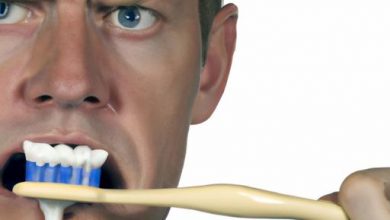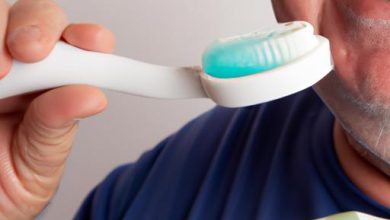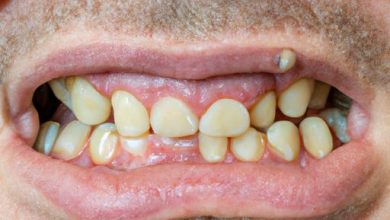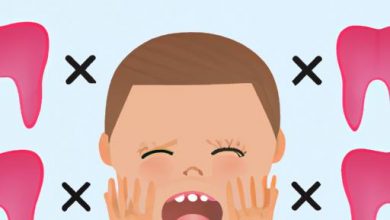3 Dental Cleanings a Year: The Secret to a Healthy Smile
Regular dental cleanings are essential for maintaining good oral health. While most people know that they should get their teeth cleaned twice a year, recent studies suggest that three dental cleanings a year may be even better. In this article, we’ll explore the benefits of getting three dental cleanings a year and what to expect during a cleaning.
The Recommended Frequency of Dental Cleanings
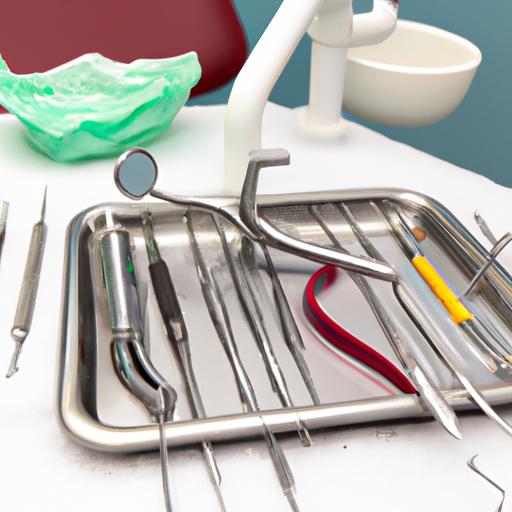
The American Dental Association recommends that people get their teeth cleaned at least twice a year. However, the frequency of dental cleanings can vary depending on an individual’s unique dental needs. Factors such as age, overall health, and the presence of gum disease can all affect how often someone should get their teeth cleaned.
According to a study published in the Journal of Dental Hygiene, people who get three dental cleanings a year are less likely to develop cavities and gum disease. The study found that having three cleanings per year reduced the risk of tooth decay by 70% compared to those who had only one cleaning per year. Additionally, those who had three cleanings per year had a 60% lower risk of developing gum disease.
Getting three dental cleanings a year is particularly important for people who are at a higher risk of developing dental problems. This includes individuals with a history of gum disease, smokers, and people with weakened immune systems. If you fall into one of these categories, it’s important to discuss your dental cleaning frequency with your dentist.
The Benefits of 3 Dental Cleanings a Year
Reduced Risk of Cavities and Gum Disease
Regular dental cleanings help prevent tooth decay by removing plaque and tartar buildup. Plaque is a sticky film of bacteria that forms on teeth and can lead to cavities and gum disease. Tartar is hardened plaque that can only be removed by a dentist or hygienist. By removing plaque and tartar, dental cleanings help keep your teeth and gums healthy.
Improved Overall Oral Health
In addition to preventing cavities and gum disease, regular dental cleanings can also improve your overall oral health. During a cleaning, your dentist or hygienist will examine your teeth and gums for any signs of problems such as oral cancer or gum recession. By catching these issues early, you can get the treatment you need to prevent them from becoming more serious.
Lower Healthcare Costs in the Long Run
Getting three dental cleanings a year may seem like an added expense, but it can actually save you money in the long run. By preventing cavities and gum disease, you’ll avoid more expensive dental procedures down the line. For example, filling a cavity costs significantly less than getting a root canal. Investing in preventative care now can save you money on more extensive treatments later.
In the next section, we’ll take a closer look at what to expect during a dental cleaning.
What to Expect During a Dental Cleaning
A dental cleaning typically takes between 30 minutes to an hour. During this time, your dentist or hygienist will perform several steps to ensure that your teeth and gums are healthy.
The Initial Exam
Before the cleaning begins, your dentist or hygienist will perform a thorough exam of your teeth and gums. They’ll look for any signs of problems such as cavities, gum disease, or oral cancer. If they find anything concerning, they may recommend further testing or treatment.
The Cleaning Process
Once the exam is complete, your dentist or hygienist will begin the cleaning process. They’ll use a small mirror and scaler to remove plaque and tartar from your teeth. Next, they’ll use a high-powered electric toothbrush to clean and polish your teeth. After your teeth are clean, they’ll floss and rinse your mouth to remove any remaining debris.
Follow-Up Care Recommendations
After your cleaning is complete, your dentist or hygienist will provide you with recommendations for follow-up care. This may include instructions on how to brush and floss, as well as advice on how to maintain good oral health between cleanings. They may also recommend additional dental procedures such as fluoride treatments or sealants to help prevent cavities.
In the next section, we’ll address common concerns that people have about getting three dental cleanings a year.
Addressing Common Concerns
Some people may have concerns about getting three dental cleanings a year. Let’s address some of the most common concerns.
Fear of Discomfort During the Cleaning
Dental cleanings are generally painless, but some people may experience discomfort during the cleaning process. If you’re concerned about discomfort, talk to your dentist or hygienist. They may be able to use a numbing gel or anesthesia to reduce any discomfort you may feel. Additionally, taking deep breaths and focusing on something else during the cleaning can help you relax and reduce discomfort.
Cost of the Additional Cleaning
Getting three dental cleanings a year may seem like an added expense, but it’s important to consider the long-term cost savings. By preventing cavities and gum disease, you’ll avoid more expensive dental procedures down the line. Additionally, some dental insurance plans cover three cleanings per year. If you’re concerned about the cost, talk to your dentist or hygienist. They may be able to work with you to come up with a payment plan or recommend other options for affordable dental care.
Time Commitment for 3 Cleanings a Year
Getting three dental cleanings a year does require a time commitment, but it’s important to prioritize your oral health. A dental cleaning typically takes between 30-60 minutes, which is a small time investment compared to the potential long-term health benefits. Additionally, many dental offices offer flexible scheduling options to accommodate busy schedules.
Conclusion
In conclusion, getting three dental cleanings a year is an excellent way to maintain good oral health. Regular cleanings help prevent cavities and gum disease, improve overall oral health, and save you money on more extensive dental procedures down the line. During a dental cleaning, you can expect an initial exam, the cleaning process, and recommendations for follow-up care. If you have concerns about getting three dental cleanings a year, talk to your dentist or hygienist. At Zahnweiss Info, we’re committed to helping you live your healthiest life by providing the latest updates on dental health news, treatments and therapies, inspiring patient stories, and expert advice.
Addressing Common Concerns
While getting three dental cleanings a year can provide numerous benefits, some people may have concerns about the process. Here are some of the most common concerns and how to address them:
Fear of Discomfort During the Cleaning
Many people are afraid that getting their teeth cleaned will be painful or uncomfortable. However, dental cleanings are generally painless. If you’re nervous about the process, talk to your dentist or hygienist beforehand. They’ll be happy to explain each step of the process and answer any questions you have. Additionally, some dental offices offer sedation options to help you feel more relaxed during the cleaning.
Cost of the Additional Cleaning
Some people may be concerned about the cost of getting three dental cleanings a year. While it’s true that an extra cleaning can add to your dental expenses, keep in mind that preventative care is often less expensive than treating dental problems that have already developed. Additionally, many dental insurance plans cover at least two cleanings per year, so the cost of an additional cleaning may be minimal.
Time Commitment for 3 Cleanings a Year
Another concern some people may have is the time commitment required for three dental cleanings a year. While it’s true that getting an extra cleaning takes time out of your schedule, keep in mind that each cleaning typically only takes 30 minutes to an hour. By prioritizing your oral health, you can help prevent more serious dental problems that could require more extensive treatment and take up even more of your time.
Conclusion
In conclusion, getting three dental cleanings a year can provide numerous benefits for your oral health. Regular cleanings can help prevent cavities and gum disease, improve your overall oral health, and save you money on more extensive dental procedures down the line. While some people may have concerns about the process, dental cleanings are generally painless and can be made more comfortable with sedation options if needed. By prioritizing your oral health through regular cleanings, you can enjoy a healthy, beautiful smile for years to come. So, make sure to schedule your next dental cleaning with Zahnweiss Info today!
